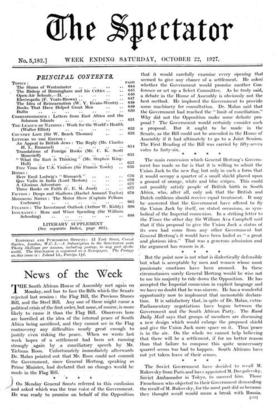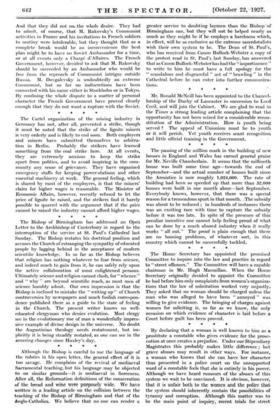The Soviet Go-v ernment have decided to recall M. Rakovsky
from Paris and have appointed M. Dovgalevsky, Soviet Ambassador in Tokyo, to succeed him. Those Frenchmen who objected to their Government demanding the recall of M. Rakovsky, for the most part did so because _ they thought recall would mean a break with Russia. And that they did not on. the whole desire. They had to admit, of course, that M. Rakovsky's Communist activities in France and his invitations to French soldiers to mutiny were intolerable, but they thought that as a complete break would be an inconvenience the best plan might be to have no Soviet Ambassador for a time, or at all events only a Charge d'Affaires. The French Government, however, decided to ask that M. Rakovsky should be succeeded by an Ambassador who would be free from the reproach of Communist intrigue outside Russia. M. Dovgalevsky is undoubtedly an extreme Communist, but so far no indiscretions have been connected with his name either in Stockholm or in Tokyo. By confining the whole dispute to a matter of personal character the French Government have proved clearly enough that they do not want a rupture with the Soviet.



























































